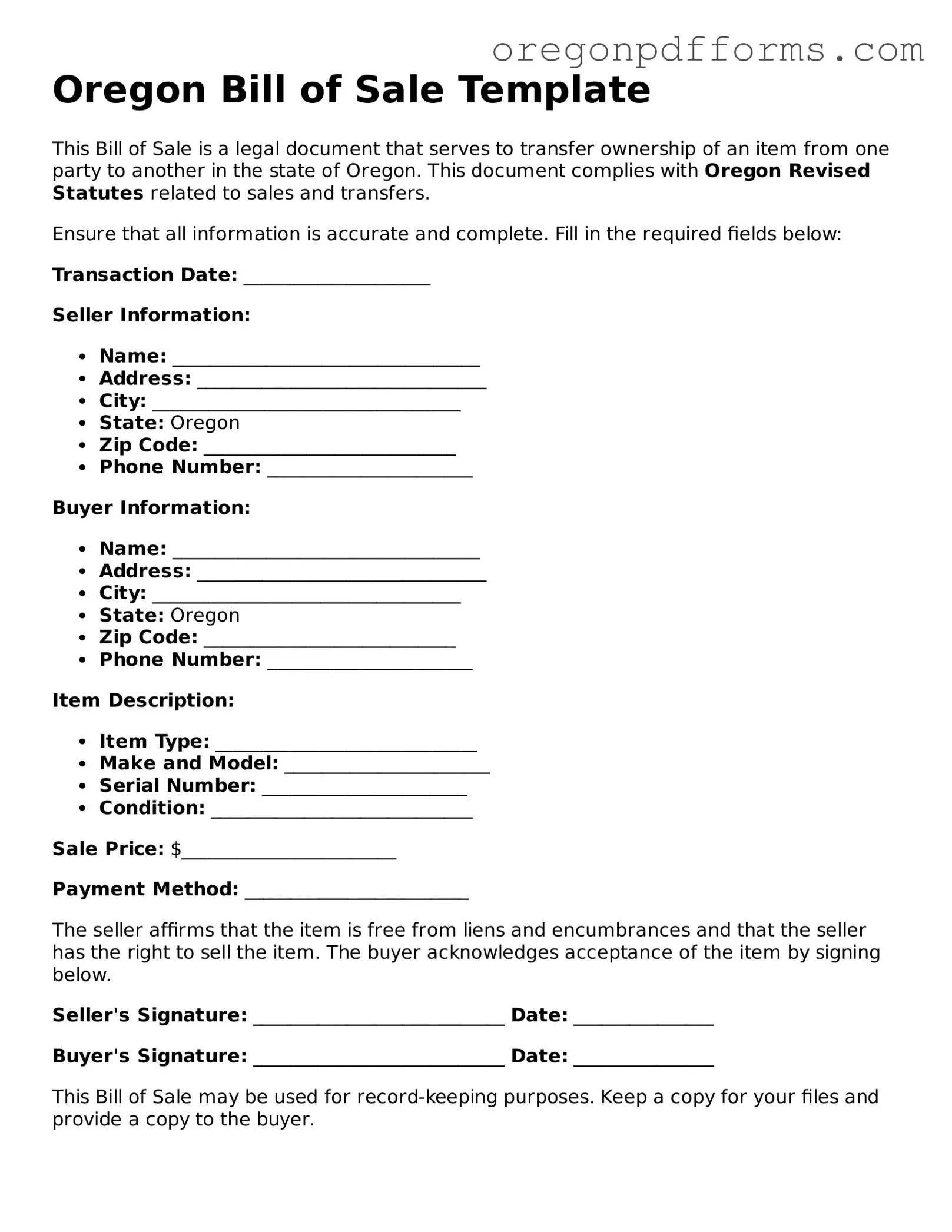Valid Bill of Sale Document for Oregon
The Oregon Bill of Sale form is a legal document that serves as proof of the transfer of ownership of personal property from one individual to another. This form is essential for both buyers and sellers to ensure a clear record of the transaction. Understanding its components and requirements can help facilitate a smooth exchange.
Open My Bill of Sale

Valid Bill of Sale Document for Oregon
Open My Bill of Sale

Open My Bill of Sale
or
Get PDF
A few steps left to finish this form
Complete Bill of Sale online with easy edits and saving.